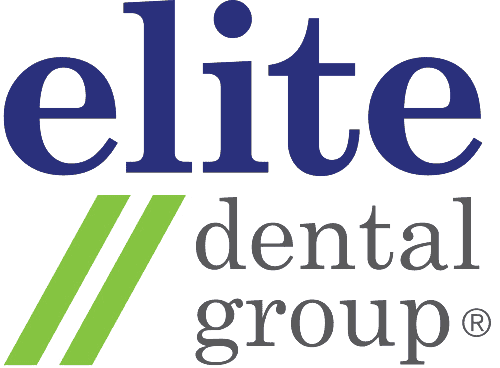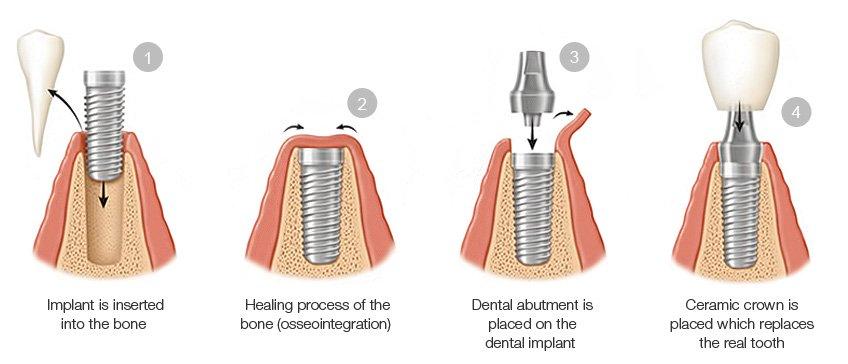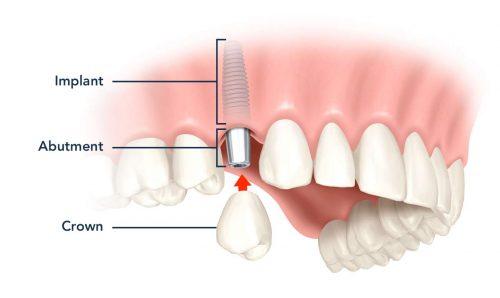Dental implant costs in Singapore range from an average of about $3500 – $6000 in total for a routine non-complex case.
As with any professional service, the majority of the costs associated with dental implant surgery that a patient pays for; is for the experience, skill, reputation and knowledge of the dental surgeon accumulated over years of training and postgraduate education. Also, costs vary depending on the complexity of the case and the time spent in planning for the surgery.
The fee you pay is Medisave claimable, up to a limit of $1250 for one dental implant ( rules subject to change *)
The Ministry of Health website also provides a rough gauge of dental implant costs in Singapore. As of 2015, public hospitals charge $1600 – $1944 per surgical implant fixture placement, while private clinics charge $2000 – $4815.
These costs are for the implant surgery alone and do not include any associated costs as broken down for you below.
What are you paying for in the final price for a dental implant?
Here’s an example of an average bill breakdown:
| PROCEDURE | COST
|
| Consultation | $40 - $80 |
| 2D OPG or Periapical dental X-rays | $80 - $120 |
| 3D CT scans (if required) | $350 - $500 |
| Implant study models and diagnostic wax ups (if required) | $100 - $250 |
| Surgical guides and/or CT guided planning (if required) | $350 - $800 |
| Bone and/or Gum grafting (if required) | $800 - $2500 |
| Sinus lifting (if required) | $1000 - $3500 |
| Dental implant crown (depending on type of crown) | $1000 - $3000 |
| Dental implant surgery (depending on difficulty) | $2000 - $4000 |
| Medication and post op reviews | $35 - $150 |
A surgical guide is a piece of custom made guiding plastic that’s placed in your mouth during surgery. This enables your dentist to place the dental implant with a high level of precision, in the correct angulation, position and depth.
Bone grafts are required when there isn’t enough healthy bone to place the dental implant. The cost varies according to the volume of bone graft is required and the complexity of the procedure.
Sinus lifting is a bone-grafting procedure that increases the amount of healthy bone to place dental implants in the upper posterior areas near to the maxillary sinuses.
Therefore, due to the many variable costs mentioned above, the final cost of a single dental implant in Singapore can range from $3500 to a whopping $15,000! (Before Medisave deductions and claims)
Other factors which affect the total cost you pay include:
- High expectations: do you prefer an impeccably natural-looking result over a basic, functional “tooth replacement” ?
- Your dental surgeon: a vastly experienced, skilful and well trained dental surgeon with registrable postgraduate qualifications in dental implant surgery and with a good reputation will be more expensive!
- Lab fees: customized and full bespoke hand- crafting of required dental implant materials in certain cases could result in higher fees
- Addressing Dental Anxiety: Local anaesthesia vs IV sedation vs general anaesthesia will vary greatly in costs.
The take home message is that there no one size fits all solution for dental implant surgery, and every case has to be carefully planned on its own circumstances and merits, as every patient is different and unique!








